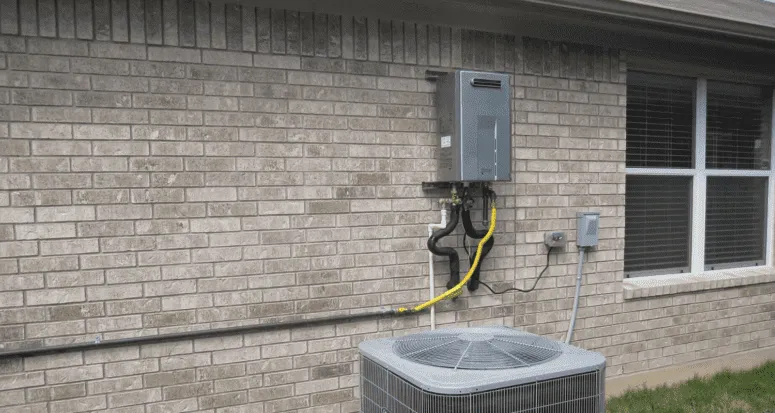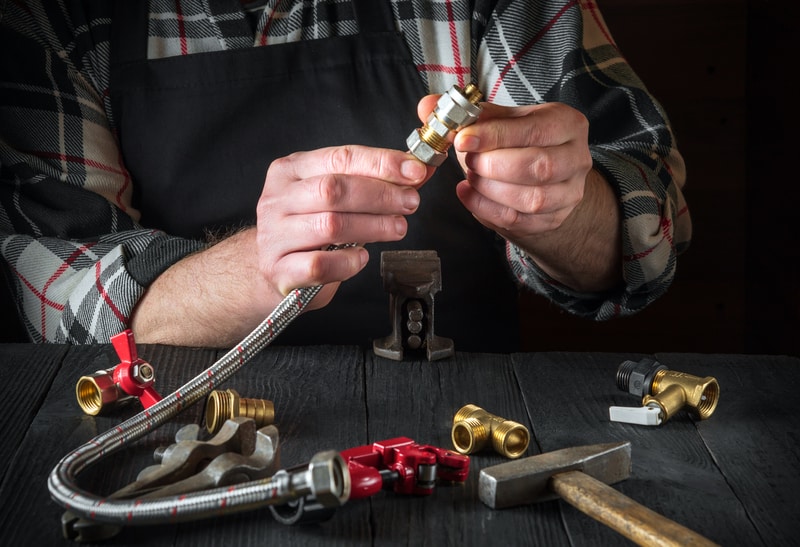Tankless water heaters provide energy-efficient, on-demand hot water without the need for bulky storage tanks. Ideal for small to medium homes, they save space and reduce energy bills but come with higher upfront costs and require proper sizing for high-demand households.
Tankless water heaters are gaining popularity in Washington due to their energy efficiency and modern design. Unlike traditional water heaters, they heat water on demand, providing instant hot water without storing it in a tank. But are they the right choice for your home? Let’s explore their benefits, drawbacks, and suitability for different needs.
What Is a Tankless Water Heater?
A tankless water heater, also known as an on-demand water heater, heats water as it flows through the system. When you turn on a hot water faucet, the heater activates, warming the water quickly without storing any in a tank. This setup ensures a steady supply of hot water whenever needed.
Types of Tankless Water Heaters
- Electric Models: Ideal for smaller homes; quick to install and require no venting.
- Gas-Powered Models: Better for larger households or colder climates; higher heating capacity.
- Point-of-Use Systems: Compact units installed near faucets for direct heating.
Why Choose a Tankless Water Heater in Washington?
Energy Efficiency
Tankless water heaters can reduce energy consumption significantly. The Department of Energy estimates they are 8%–50% more efficient than traditional systems.
Continuous Hot Water
Say goodbye to cold showers. These systems ensure you always have hot water, even during high-demand periods.
Compact Design
Unlike bulky traditional tanks, tankless systems can be mounted on walls, saving valuable space in your home.
Longer Lifespan
With proper care, tankless heaters last up to 20 years, nearly double the lifespan of tank-based systems.
Challenges of Tankless Water Heaters
High Initial Costs
The cost of a tankless system starts around $1,300 and can exceed $3,800, plus installation fees.
Flow Rate Limitations
Most units supply 1–5 gallons per minute. If multiple faucets or appliances are used simultaneously, you may need a larger or additional unit.
Installation Requirements
Older homes in Washington might need upgrades to gas or electrical lines, which can increase installation costs.
Hard Water Issues
Hard water can cause scale buildup in tankless systems, requiring regular maintenance or a water softener.
Who Benefits Most from Tankless Water Heaters?
Tankless systems are ideal for:
- Small to Medium Homes: Where hot water demand is moderate.
- Eco-Conscious Homeowners: Looking to save energy and reduce environmental impact.
- Homes with Limited Space: Apartments or houses with small utility areas.
However, large families or homes with high simultaneous water usage may face limitations with a single tankless unit.
How to Maintain Your Tankless Water Heater
Regular Descaling
Hard water can lead to mineral buildup. Descale your unit annually to maintain efficiency.
Inspect Filters
Check and clean the system’s filters every few months to ensure proper water flow.
Professional Maintenance
Schedule routine inspections with certified plumbers to keep your system in top condition. Visit our heating maintenance page for expert help.
Traditional vs. Tankless Water Heaters
| Feature | Traditional | Tankless |
|---|---|---|
| Energy Efficiency | 40%–60% | 80%–99% |
| Lifespan | 10–15 years | Up to 20 years |
| Space Requirements | Large storage space | Compact, wall-mounted |
For more insights, check out our guide on energy-efficient heating systems.
Tankless Water Heaters for Businesses
Businesses in Washington can benefit greatly from tankless systems. Restaurants, hotels, and medical facilities often need a continuous supply of hot water. Tankless systems provide reliable performance while reducing energy costs. For tailored solutions, explore our commercial plumbing services.
Common Misconceptions About Tankless Systems
“They’re Too Expensive”
While the upfront cost is higher, the long-term savings on energy bills often offset this. Tankless systems also last longer, reducing replacement costs.
“They Can’t Handle Demand”
This depends on the unit size and your household’s water usage. Large homes may need multiple systems or high-capacity units.
For more tips on saving money on home utilities, visit our guide on reducing heating bills in Washington.
Key Considerations Before Installation
- Evaluate Your Hot Water Needs: Determine your household’s peak hot water usage.
- Choose the Right Type: Electric for smaller homes, gas for larger ones.
- Plan for Upgrades: Assess your home’s electrical and plumbing systems.
- Understand Maintenance Needs: Regular descaling and filter cleaning are essential.
Need help deciding? Contact us today for personalized advice and expert installation. Visit our plumbing page or call TEL: [Your Phone Number] to get started.
Final Thoughts
Tankless water heaters are an excellent option for Washington homeowners looking for energy-efficient and space-saving solutions. However, they may not be ideal for everyone. By understanding their advantages and limitations, you can make an informed decision that suits your home and lifestyle.
For more information, explore our heating services and plumbing solutions to find what works best for you.



